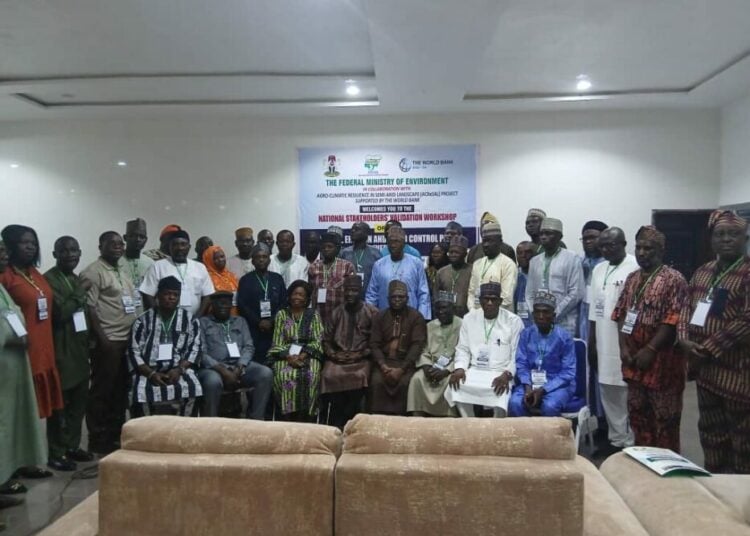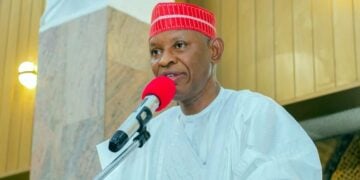In collaboration with Agro-Climate Resilience in Semi-Arid Landscape (ACReSAL), the federal Ministry of Environment has reviewed and validated the National Erosion and Flood Control Policy (NEFCOP).
The permanent secretary of the ministry, Mr Mahmud A. Kambari, in a keynote address at yesterday’s validation workshop in Mararaba, Nasarawa State, revealed that the reviewed document represents a holistic national framework aimed at preventing and mitigating the impact of erosion and flooding.
Kambari said the document will help promote integrated land and water resource management, strengthen institutional coordination across all levels of government, enhance community resilience and adaptive capacity, and align Nigeria’s environmental management efforts with global best practices and international commitments.
The permanent secretary who commended the department of Erosion, Flood and Coastal Zone Management of the ministry, which spearheaded the review of over twenty years of documents, also urged participants to approach the exercise with diligence and open-mindedness.
He said further that they should ensure that the policy and accompanying documents truly reflect Nigeria’s national realities, as well as address the identified gaps, and offer practical solutions that can be implemented
across the different ecological and administrative contexts of the country.
Earlier, the director of the Department of Erosion, Flood and Coastal Zone Management, Usman Abdullahi Bokani, noted that the workshop marks another critical milestone in their collective efforts to strengthen Nigeria’s resilience against the persistent and devastating impacts of erosion and flooding.
“Today’s validation workshop provides a platform for inclusive dialogue and stakeholder consensus-building.
It allows us to critically examine and review policy, validate its provisions, and ensure that it adequately addresses the needs and aspirations of all relevant sectors, whether government, agencies, communities, academia, or development partners. “
“Over the years, these environmental hazards have become more frequent and intense due to the combined pressures of climate change, rapid urbanisation, deforestation, and poor land-use practices. These realities call for an updated, comprehensive, and well-coordinated national policy framework to guide our mitigation and adaptation efforts effectively”, Bokani stressed.
In response, the National Project Coordinator of ACReSAL, Mr Abduhamid Umar, revealed that the reviewed document will help guide how these infrastructures will be implemented and will also provide guidance, particularly in watershed management, peace building among communities, and community education and sensitisation on what to do and what not to do to prevent or mitigate erosion.
Umar, who was represented by a senior member of the Project, Musa Shuiabu, also pledged to support the Nigerian dream and assist its Erosion Management Centre.
“We are here as a Project to support this project, and we hope the document will be all-encompassing. It will consider structural and non-structural interventions that will be put in place, and guide. We will be guiding the establishment of structures that will bring about minimal disturbance to the environment so that issues of flooding and erosion are averted”, he promised.





